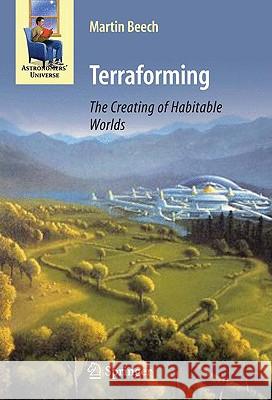Terraforming: The Creating of Habitable Worlds » książka
Terraforming: The Creating of Habitable Worlds
ISBN-13: 9780387097954 / Angielski / Twarda / 2009 / 291 str.
The word ''terraforming'' conjures up many exotic images and p- hapsevenwildemotions, butatitscoreitencapsulatestheideathat worldscanbechangedbydirecthumanaction.Theultimateaimof terraforming is to alter a hostile planetary environment into one that is Earth-like, and eventually upon the surface of the new and vibrant world that you or I could walk freely about and explore. It is not entirely clear that this high goal of terraforming can ever be achieved, however, and consequently throughout much of thisbooktheterraformingideasthatarediscussedwillapplytothe goal of making just some fraction of a world habitable. In other cases, theterraformingdescribedmightbeaimedatmakingaworld habitablenotforhumansbutforsomepotentialfoodsourcethat, of course, could be consumed by humans. The many icy moons that reside within the Solar System, for example, may never be ideal locationsforhumanhabitation, buttheypresentthegreatpotential for conversion into enormous hydroponic food-producing centers. The idea of transforming alien worlds has long been a literary backdrop for science fiction writers, and many a make-believe planet has succumbed to the actions of direct manipulation and the indomitable grinding of colossal machines. Indeed, there is something both liberating and humbling about the notion of tra- forming another world; it is the quintessential eucatastrophy espoused by J. R. R. Tolkien, the catastrophe that ultimately brings about a better world. When oxygen was first copiously produced by cyanobacterial activity on the Earth some three billion years ago, it was an act of extreme chemical pollution and a eucatastrophy. The original life-nurturing atmosphere was (eventually) changed f- ever, but an atmosphere that could support advanced life forms came about.











